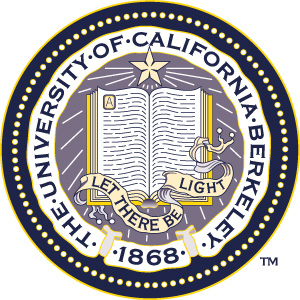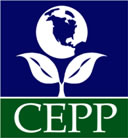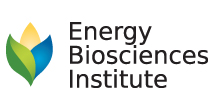
Conference on Intellectual Property Rights
and Technology Transfer
in the U.N. Climate Negotiations
October 26-27, 2009
University of California, Berkeley
Agenda
Location: Sutardja Dai Hall, Center for Information Technology Research in the Interest of Society (CITRIS), UC Berkeley.
Monday, October 26 – U.N. negotiations deadlock on tech transfer and IPR |
|
8:30 |
Continental breakfast and registration |
9:00 |
Welcome and overview, Blas Perez Henriquez, director, Center for Environmental Public Policy. |
9:10 |
Welcome, Gary Baldwin, director of special projects, CITRIS. |
9:15 |
Session 1 – Overview of tech transfer and IPR in the U.N. climate negotiations. Discussion of latest diplomatic maneuverings in UNFCCC preparatory talks, and the outlook for the December summit in Copenhagen. Points of agreement and disagreement between clean tech industry, G77 nations, and scientific researchers. |
11:00 |
Break |
11:15 |
Session 2 – Lessons learned, pro and con, from existing policies, mandates and R&D collaboratives: Compulsory licensing in WTO-Doha agreement on essential medicines, U.S. domestic legislation, and the Consultative Group on International Agricultural Research. |
1:00 |
LUNCH |
2:00 |
Session 3 – The role of R&D, private and public, in clean tech deployment in developing nations. Which sectors of private R&D have cost barriers to deployment and which sectors have little or no such barriers? What is the role of basic public R&D in the clean tech industry – what are the unfulfilled R&D functions that are not filled by the private sector and need to be filled by public research institutions, currently and in the future?
|
3:30 |
Break |
3:45 |
Session 4 – Sectoral breakout workshops focused on individual industries. The four topics are: next-generation biofuels; solar (thin film, concentrated thermal, energy storage); power sector (generation, smart grids, smart metering); and buildings energy efficiency. The workshop sessions will examine the role of IPR in the deployment of these technologies in developing nations, the impact of proposals being debated in the U.N. climate talks, and the current and potential role of private and public R&D. |
Tuesday, October 27 – Solutions to the deadlock |
|
8:30 |
Continental breakfast and registration |
9:00 |
Session 5 – An evaluation of the potential benefits and risks of a new climate treaty for the clean tech industry in developed and developing nations alike. Speakers will evaluate the perspective of venture capital firms and other sources of clean-tech capital, and the need to protect the innovation process in developed and developing nations alike. What are the clean-tech industry’s needs? What are its red lines? Where are its strategic opportunities? |
10:45 |
Break |
11:00 |
Session 6 – Green tech for the poorest. Much of the tech-transfer climate debate has been focused on large developing nations such as China and Brazil, while less attention has been given to the least developed, nonindustrialized nations whose emissions are nonetheless growing fast. Attention is needed for “orphan” areas of research with few developed-market incentives for innovation, such as drought-resistant African crops and small-scale desalination. Which emissions-reducing technologies are most needed by the poorest nations? |
12:30 |
LUNCH |
1:15 |
Keynote – Paul Alivisatos, director, Lawrence Berkeley National Laboratory |
2:15 |
Session 7 – Sectoral breakouts (continuation from previous day). |
3:30 |
Session 8 – Report back from sectoral breakouts. Moderator – Mei Gechlik, lecturer, Stanford Law School. |
4:00 |
Session 9 – The road ahead. We will explore potential solutions to the stalemate over IPR. How best can RD&D of clean tech be stimulated in ways that protect innovation but also address developing nations’ concerns? Discussion will include proposals such as the creation of a multilateral network of government-sponsored clean-tech RD&D centers, analogous to the international crop research center network of the Consultative Group on International Agricultural Research. |
Program Summary

Center for Environmental Public Policy


Overview
The Center for Environmental Public Policy is convening a conference about one of the key stumbling blocks in the U.N. climate negotiations – the debate over the role of intellectual property rights in the transfer of emissions-reducing technologies to developing nations.
The chief intent of this program is to facilitate expert discussion among clean tech stakeholders with the aim of preventing a negotiating impasse and controversy over IPR issues at the climate negotiations. The Copenhagen summit in December 2009 has the daunting task of drawing up a new climate treaty to replace the Kyoto Protocol, yet the chances of an agreement are increasingly slim. An unsuccessful summit outcome would likely cause increasingly acrimonious debate in the United States and worldwide about the role of clean technologies in a new climate treaty – how much, who pays, and who owns the intellectual property.
At stake is nothing less than the next stage of the world’s clean-tech revolution. The creation of a transparent, stable climate agreement on IPR and clean-tech R&D could open new markets in developing nations, protect patent rights and stimulate entrepreneurship and innovation by the clean-tech industry in wealthy and poor nations alike. A successful, well-designed agreement could provide security and transparency to scientists, entrepreneurs and corporations and thus encourage the creation, financing and deployment of new emissions-reducing inventions. In effect, a new climate pact could be a “green Doha Round,” a clean-tech version of the long-delayed agreement at the World Trade Organization. However, the failure to agree on a successor climate treaty could spark international acrimony and new trade barriers.
In large part, the tech transfer discussions in the U.N. climate talks have been hobbled by an expertise gap. The legal and economic issues that must be navigated are highly complex, yet the governments-only format of the U.N.-supervised negotiations does not allow participation by the clean-tech industry and its legal advisers. As a result, those with most detailed knowledge of IPR issues are largely unable to dialogue with the developing nations that are demanding new initiatives at the negotiating table.
Our conference is intended to bridge that gap and to create an incubator for expert dialogue and consensus building. It will bring clean-tech firms and their legal counsel to the same table as experts from developing nations, Berkeley School of Law, Lawrence Berkeley National Laboratory and specialized international NGOs. Our program will focus on the IPR aspect of technology transfer and will not address the financing of tech transfer, a topic that is a major issue unto itself and is receiving sufficient attention in other international venues.
Background
The tech transfer issue has emerged in recent months as one of the most contentious issues at the U.N. climate talks. Developing nations, led by the G-77 and China, are proposing a wide-ranging system to allow poorer nations to adapt to global warming and limit their own emissions. To date, much of the tech transfer discussion has centered on the means of financing this process, either through the proposal by the G-77 and China for a multi-billion-dollar fund and/or through wealthy nations’ desire to provide some financing through a cap-and-trade system and through voluntary contributions to an international climate fund. But the other side of tech transfer is an equally contentious challenge – how to protect IPR and stimulate entrepreneurship and innovation while simultaneously facilitating clean tech deployment in poor nations.
The G-77/China proposal includes the demand for a system akin to the one created by the 2001 Doha Declaration on drugs for AIDS and malaria, which expanded WTO member states’ ability under the Agreement on Trade Related Aspects of Intellectual Property Rights (TRIPs) to engage in practices such as compulsory licensing for life-saving medicines. In response to this pressure, the U.S. House of Representatives voted 432-0 in June 2009 to oppose any concessions at Copenhagen that would weaken the intellectual property rights of American green technology.
The results of the most recent UNFCCC preparatory negotiations in Bangkok, Sept. 28-Oct. 9, have caused deep concern among the clean tech industry and its U.S. supporters. The diplomatic subgroup on tech transfer, the Contact Group on Enhanced Action on Development and Transfer of Technology, released a “white paper” summarizing the various negotiating positions. Several clauses authored by G77 nations called for compulsory licensing of clean technology, thus showing that the North-South divide on IPR remains deep and wide after many months of diplomatic wrangling.
As a result, the stage is set for bitter acrimony at Copenhagen over IPR, creating a dichotomy of private property versus planetary survival that could sully the image of the clean tech industry and do major damage to the U.N. climate talks.
Our conference will try to find innovative ways around this IPR blockage, in part by aggressively exploring the potential for international collaborative R&D. The most authoritative recent research on the dispute, such as Who Owns Our Low-Carbon Future?, by Chatham House (September 2009), recommends the expansion of a wide variety of bilateral and multilateral RD&D-related programs, including joint venture companies, cross-training programs, cross-licensing arrangements, multilateral R&D cooperation agreements, publicly backed energy patent pools and knowledge sharing platforms, and a global database on licensing data and best practices.
A related framework is India’s “CleanNet” proposal for the creation of an international network of clean tech RD&D centers for developing nations and Least Developed Countries. India’s proposal, which has received support from many G77 nations, cites as a precedent the Consultative Group on International Agricultural Research (CGIAR), an institution created by the World Bank and United Nations in the early 1970s that now includes 15 international crop research centers.
Closer to home, the Lawrence Berkeley National Laboratory is a pioneer in international R&D collaboration on energy efficiency, especially with China and India.
Our conference will explore these examples and discuss policy alternatives that can help defuse the controversy over IPR in Copenhagen and beyond.
Registration
Registration is now closed.
Hotel: For hotel reservations, please contact the Claremont Hotel, online here or at 800-551-7266. If registering online, please enter the code CEP1009 in the Group Code to get the special rate of $149/night. If registering by phone, please ask for the “CEPP Group” to get the discount. CEPP will provide transportation to and from the hotel and the conference site.
back to topParking
Parking will be available in the second floor of the Lower Hearst Parking garage, located at Hearst Avenue and Scenic Avenue (entrance on Scenic). There will be an attendant selling parking tickets for $15 per day.
back to topSupporting Organizations
The following organizations have generously given support for this conference:




Further support is welcome, including sponsorships of individual sectoral workshops (Sessions 4 and 7), and hosting of reception and dinner. For further details, please inquire with Robert Collier at the Center for Environmental Public Policy. [ ]
back to top